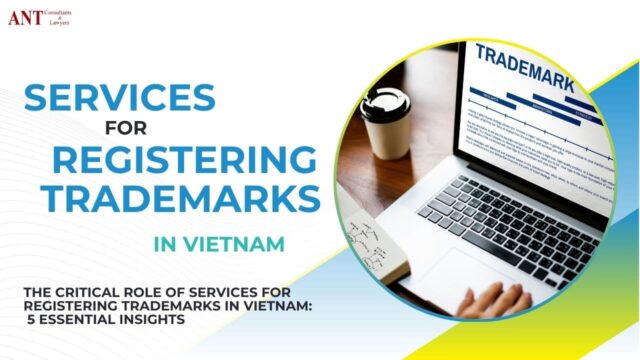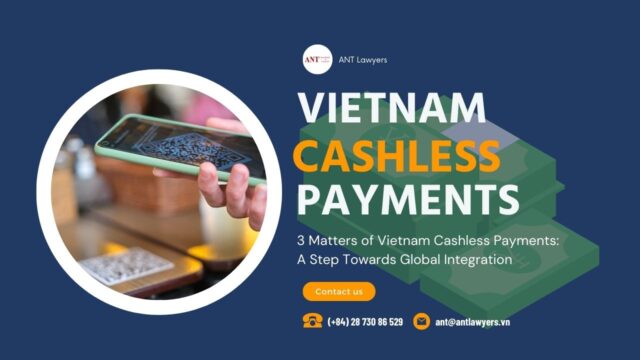In Vietnam’s rapidly developing economy, business owners are increasingly recognizing the necessity of proficient legal services. As they navigate the complex terrain of starting and running a business, encountering legal hurdles is almost a given. Legal services in Vietnam are not a mere formality but a cornerstone for securing a company’s integrity and longevity. This comprehensive article delves into the pivotal role that legal services provided by law firms in Vietnam play in various aspects of Vietnamese business operations.
Legal Services in Vietnam: Constructing a Business Structure
The genesis of any business endeavor in Vietnam begins with choosing an appropriate business structure. Legal services play a critical role in this initial phase. Entrepreneurs must engage legal services to assess the risks and advantages of different business forms, whether it be a limited liability company, a joint-stock company, or a partnership. Legal professionals provide insights on the implications of each structure, particularly in relation to shielding business owners from liability claims. In the top echelons of setting up a business, legal services provide the blueprint for future security and are instrumental in the foundational stages of business planning.
Legal Services in Vietnam: Creating Contracts
Once the business structure is established, legal services become indispensable in the creation of contracts. In Vietnam, where business dealings could be rooted in both local and international laws, contracts are the lifeblood of commercial operations. Legal services ensure that these documents are not only legally binding but are also crafted to protect the business’s interests. From employment agreements to supplier contracts, legal services ensure each clause is meticulously analyzed to prevent future disputes.
Legal Services in Vietnam: Navigating Licensing
Licensing is another domain where legal services are paramount in Vietnam. The country’s regulatory framework can pose challenges for small and medium-sized enterprises unfamiliar with the intricate licensing requirements. Legal services act as navigators, guiding businesses through the labyrinth of administrative procedures, and helping them comply with local regulations. By leveraging legal expertise, companies can avoid inadvertent violations and the hefty fines that could follow.
Legal Services in Vietnam: Preparing for Lawsuits
Despite diligent management and compliance efforts, businesses in Vietnam may still face the prospect of litigation. Legal services become the vanguard, preparing and fortifying the business against lawsuits. Whether it’s a worst-case scenario or a minor legal scuffle, having robust legal support services can make a significant difference in the outcome. Legal services offer both preventative advice to minimize the risk of being sued and defensive strategies if litigation becomes inevitable.
The Spectrum of Legal Services in Vietnam
Vietnam’s business climate calls for a myriad of other legal services. Intellectual property protection, tax law guidance, labor law compliance, and corporate governance are just a few areas where legal services are extensively utilized. As Vietnamese laws evolve and international trade agreements come into play, the demand for sophisticated legal services has skyrocketed. Businesses must stay abreast of legal changes and rely on legal services to adapt accordingly.
The Role of Legal Services in Vietnam in Business Growth
Legal services are not only about safeguarding against risks; they are also a catalyst for growth. By ensuring that a business’s operations are compliant with Vietnamese laws, legal services can facilitate smoother expansions, both domestically and internationally. They provide the due diligence necessary for mergers, acquisitions, and partnerships, assuring that such moves are judicious and legally sound.
The Digital Transformation of Legal Services
In line with global trends, Vietnam’s legal services sector is undergoing a digital transformation. This shift has made legal support more accessible and efficient. From online contract management to virtual legal consultations, the digital realm offers innovative solutions that complement traditional legal services.
Legal Services in Vietnam and International Trade
Vietnam’s participation in various free trade agreements has accentuated the importance of legal services in navigating international trade laws. Legal professionals help businesses understand and comply with the complex web of regulations that govern international commerce, ensuring that Vietnamese businesses remain competitive on the global stage.
Legal Services in Vietnam as a Reflection of Vietnam’s Legal Reforms
The development of legal services in Vietnam also mirrors the country’s efforts to reform its legal system. As Vietnam works towards greater transparency and adherence to international legal standards, legal services have become more proactive. They are not only reactive to issues but also shape the legal landscape by contributing to policy discussions and legislative developments.
In Vietnam’s dynamic market, legal services are the bulwark that fortifies a business’s operations against potential legal adversities. They are integral to every stage of a business lifecycle, from inception to expansion.
For businesses to thrive in Vietnam’s competitive environment, investing in quality legal services is not just advisable—it’s essential. Legal services ensure compliance, mitigate risks, and position businesses for sustained success. As Vietnam continues its trajectory towards economic prominence, the symbiosis between business operations and legal services will only grow stronger, underpinning the very fabric of Vietnam’s commercial prosperity.
ANT Lawyers, law firm in Vietnam
We help clients overcome cultural barriers and achieve their strategic and financial outcomes, while ensuring the best interest rate protection, risk mitigation and regulatory compliance. ANT lawyers has lawyers in Ho Chi Minh city, Hanoi, and Danang, and will help customers in doing business in Vietnam.
Source: https://antlawyers.vn/update/legal-services-in-vietnam.html










